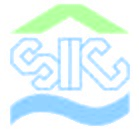Crónicas de autores
Carolina Gómez-Llorente *
Autor invitado por SIIC
PAPEL DE LOS PROBIÓTICOS EN EL DESARROLLO DE LA INMUNOTOLERANCIA
Los TLR en las células dendríticas están implicados en la generación de respuesta inmunitaria protectora contra los agentes patógenos inductores de citoquínas proinflamatorias. Aunque hay evidencia sustancial de estudios in vitro y en animales que muestran el potencial de los probióticos y una capacidad cepa especifica inmunomoduladora, los resultados de los ensayos de intervención humana han sido mucho menos convincentes.*Carolina Gómez-Llorente
describe para SIIC los aspectos relevantes de su trabajo
ROLE OF TOLL-LIKE RECEPTORS IN THE DEVELOPMENT OF IMMUNOTOLERANCE MEDIATED BY PROBIOTICS

Proceedings of the Nutrition Society,
69(3):381-389 Ago, 2010
Esta revista, clasificada por SIIC Data Bases, integra el acervo bibliográfico
de la Biblioteca Biomédica (BB) SIIC.
69(3):381-389 Ago, 2010
Esta revista, clasificada por SIIC Data Bases, integra el acervo bibliográfico
de la Biblioteca Biomédica (BB) SIIC.
Institución principal de la investigación
*Universidad de Granada, Granada, España
Imprimir nota
Referencias bibliográficas
1. Artis D. (2008) Epithelial-cell recognition of commensal bacteria and maintenance of immune homeostasis in the gut. Nat Rev 8, 411-420.
2. Dogi CA, Perdigón G. (2006) Importance of the hits specificity in the selection of probiotic bacteria. J Dairy Res 73, 357-366.
3. West X, Malinin N, Merkulova A et al.(2010) Oxidative stress induces angiogenesis by activating TLR2 with novel endogenous ligands. Nature 467, 972-976
4. Coombes JL, Powrie Fiona. (2008) Dendritic cells in intestinal immune regulation. Immunology 8, 435-446.
5. Rimoldi M, Chieppa M, Larghi P, et al.(2010) Monocyte-derived dendritic cells activated by bacteria or by bacteria-stimulated epitelial cells are functionally different. Blood 16, 2818-2826
6. Liu G, Zhao Y. (2007) Toll-like receptors and immune regulation: their direct and indirect modulation on regulatory CD+CD25+T cells. Immunology 122, 149-156.
7. Dogi CA, Maldonado Galdeano C, Perdigón G. (2008) Gut immune stimulation by non pathogenic Gram(+) and Gram(-) bacteria. Comparison with a probiotic strain. Cytokine 41, 223-231.
8. Rachmilewits D, Katatura K, Karmeli F et al. (2004) Toll-like receptor 9 signalling mediates the anti-inflammatory effects of probiotics in murine experimental colitis. Gastroenterology 126, 520-528.
9. Ghadimi D, De Vrese M, Heller KJ et al. (2009) Effect of natural commensal-origin DNA on toll-like receptor 9 (TLR9) signalling cascade, chemokine IL-8 expression, and barrier integrity of polarized intestinal epithelial cells. Inflamm Bowel Dis doi: 10.1002/ibd.21057
10. Hall JA, Bouladoux N, Sun CM et al. (2008) Commensal DNA limits regulatory T cell conversion and is a natural adjuvant of intestinal immune responses. Immunity 29, 637-649.
11. Vinderola G, Matar C, Perdigón G. (2005) Role of the epithelial cells in the immune effects mediated by Gram-positive probiotic bacteria. Involvement of Toll-like receptors. Clin Diagn Lan Immunol 12, 1075-1084.
12. Grabig A, Paclik D, Guzt C et al. (2006) Escherichia coli strain Nissle 1917 ameliorates experimental colitis via toll-like receptor 2- and toll-like receptor 4-dependent pathways. Infect Immun 74, 4075-4082.
13. Hoarau C, Lagaraine C, Martin I et al. (2006) Supernatant of Bifidobaterium breve induces dendritic cell maturation, activation, and survival through a Toll-like receptor pathway. J. Allergy Clin Immunol 117, 696-702.
14. Lee JH, Lee B, Lee HS et al. (2009) Lactobacillus suntoryeus inhibits pro-inflammatory cytokine expression and TLR-4-linked NF-B activation in experimental colitis. Int J Colorectal Dis 24, 231-237.
15. Vanderpoll C, Yan F, Polk B. (2008) Mechanisms of probiotic action: implications for therapeutic applications in inflammatory bowel diseases. Inflamm Bowel Dis 14, 1585-1595.
16. Miettinen M, Vackman V, Latvala S et al. (2008) Live Lactobacillus rhamnosus and Streptococcus pyogenes differentially regulate Toll-like receptor (TLR) gene expression in human primary macrophages. J Leukoc Biol 84, 1092-1100.
17. Ehlers M, Ravetch JV. (2007) Opposing effects of toll-like receptor stimulation induce autoimmunity or tolerance. Trends Immunol 28, 74-79.
1. Artis D. (2008) Epithelial-cell recognition of commensal bacteria and maintenance of immune homeostasis in the gut. Nat Rev 8, 411-420.
2. Dogi CA, Perdigón G. (2006) Importance of the hits specificity in the selection of probiotic bacteria. J Dairy Res 73, 357-366.
3. West X, Malinin N, Merkulova A et al.(2010) Oxidative stress induces angiogenesis by activating TLR2 with novel endogenous ligands. Nature 467, 972-976
4. Coombes JL, Powrie Fiona. (2008) Dendritic cells in intestinal immune regulation. Immunology 8, 435-446.
5. Rimoldi M, Chieppa M, Larghi P, et al.(2010) Monocyte-derived dendritic cells activated by bacteria or by bacteria-stimulated epitelial cells are functionally different. Blood 16, 2818-2826
6. Liu G, Zhao Y. (2007) Toll-like receptors and immune regulation: their direct and indirect modulation on regulatory CD+CD25+T cells. Immunology 122, 149-156.
7. Dogi CA, Maldonado Galdeano C, Perdigón G. (2008) Gut immune stimulation by non pathogenic Gram(+) and Gram(-) bacteria. Comparison with a probiotic strain. Cytokine 41, 223-231.
8. Rachmilewits D, Katatura K, Karmeli F et al. (2004) Toll-like receptor 9 signalling mediates the anti-inflammatory effects of probiotics in murine experimental colitis. Gastroenterology 126, 520-528.
9. Ghadimi D, De Vrese M, Heller KJ et al. (2009) Effect of natural commensal-origin DNA on toll-like receptor 9 (TLR9) signalling cascade, chemokine IL-8 expression, and barrier integrity of polarized intestinal epithelial cells. Inflamm Bowel Dis doi: 10.1002/ibd.21057
10. Hall JA, Bouladoux N, Sun CM et al. (2008) Commensal DNA limits regulatory T cell conversion and is a natural adjuvant of intestinal immune responses. Immunity 29, 637-649.
11. Vinderola G, Matar C, Perdigón G. (2005) Role of the epithelial cells in the immune effects mediated by Gram-positive probiotic bacteria. Involvement of Toll-like receptors. Clin Diagn Lan Immunol 12, 1075-1084.
12. Grabig A, Paclik D, Guzt C et al. (2006) Escherichia coli strain Nissle 1917 ameliorates experimental colitis via toll-like receptor 2- and toll-like receptor 4-dependent pathways. Infect Immun 74, 4075-4082.
13. Hoarau C, Lagaraine C, Martin I et al. (2006) Supernatant of Bifidobaterium breve induces dendritic cell maturation, activation, and survival through a Toll-like receptor pathway. J. Allergy Clin Immunol 117, 696-702.
14. Lee JH, Lee B, Lee HS et al. (2009) Lactobacillus suntoryeus inhibits pro-inflammatory cytokine expression and TLR-4-linked NF-B activation in experimental colitis. Int J Colorectal Dis 24, 231-237.
15. Vanderpoll C, Yan F, Polk B. (2008) Mechanisms of probiotic action: implications for therapeutic applications in inflammatory bowel diseases. Inflamm Bowel Dis 14, 1585-1595.
16. Miettinen M, Vackman V, Latvala S et al. (2008) Live Lactobacillus rhamnosus and Streptococcus pyogenes differentially regulate Toll-like receptor (TLR) gene expression in human primary macrophages. J Leukoc Biol 84, 1092-1100.
17. Ehlers M, Ravetch JV. (2007) Opposing effects of toll-like receptor stimulation induce autoimmunity or tolerance. Trends Immunol 28, 74-79.
ua40317


































